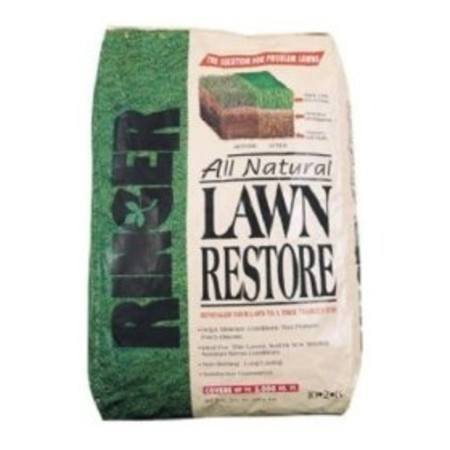
You can go green without pesticides and fertilizers.
Over the last few weeks, we've been flooded with advertising for lawn care, landscaping and gardening products. You too can have a lawn or garden free of weeds and pests, the pitches say.
But at what cost? All those fertilizers, pesticides and miracle chemicals go somewhere, especially if you&# 039;re one of the many people who overwater their lawns, which is pretty much the majority of homeowners.
Unfortunately, the chemicals seep into our watersheds and flow to our beaches.
So what are the alternatives? I found many resources, including this: Organic Lawn Care for the Cheap and Lazy (That would be me!).
One easy piece of advice is to mow high and let your grass outcompete your weeds. Plus, it's a myth that if you mow low you can wait longer to cut your lawn again. Here's the scoop on how mowing high can benefit your lawn. It creates:
more shade for the soil, which translates to less watering
deeper roots, which also means less watering
thicker turf, which leads to fewer weeds
slower growth, which leads to less mowing
The second must-do, according to Organic Lawn Care for the Cheap and Lazy, is to water infrequently. Yes, infrequently. It will help your lawn develop deep roots and keep shallow-rooted weeds under control. So, turn off your sprinkler timer and follow these two tips:
Before grass turns brown, it starts to curl. When you see curling begin, it's time for "intensive-care watering" (water half an inch, wait three hours and water an inch).
Push a shovel about 6 inches into the soil, keeping the sun to your left or right as you do. Then push the handle forward. If you can see any moisture, wait. If it's all dry, water. If you can't get your shovel that deep into the soil, you need more soil.
The first method is the best, especially if you have not yet trained your grass to grow deep roots.
Cheap and Lazy also recommends Ringer Lawn Fertilizer, but there are alternatives. One is to leave the clippings when you mow, creating a natural fertilizer. It's even easier when you have an old-fashioned hand mower (which we happen to have because our lawn is so tiny it's quite silly to have anything else).
Ditching gas-powered lawncare equipment has another bonus. According to the EPA, gas mowers and trimmers contribute 10 percent of our air pollution.
Other tips:
Test your soil. Knowing whether it's sand, clay or something else makes a difference in lawn care.
Aerate your lawn in the spring
Over-seed your lawn to crowd out weeds. Or treat with organic alternatives such as Premerge Natural Weed Control.
Spot-treat weeds at the root with a 50-50 mixture of water and vinegar.
Use organic pest-control options, such as Greenlight.
And, of course, if you don't have the time or inclination, plenty of lawn services are available for hire.
So, that's a start. There are many resources and tips out there if you want to dig a little further.
Ultimately, we'd probably be better off with less turf and more native plants (or edibles) in our front yards, but I know how much we love our lawns. So, let's keep them safer and more environmentally friendly.
Article Courtesy of: http://alisoviejo.patch.com

